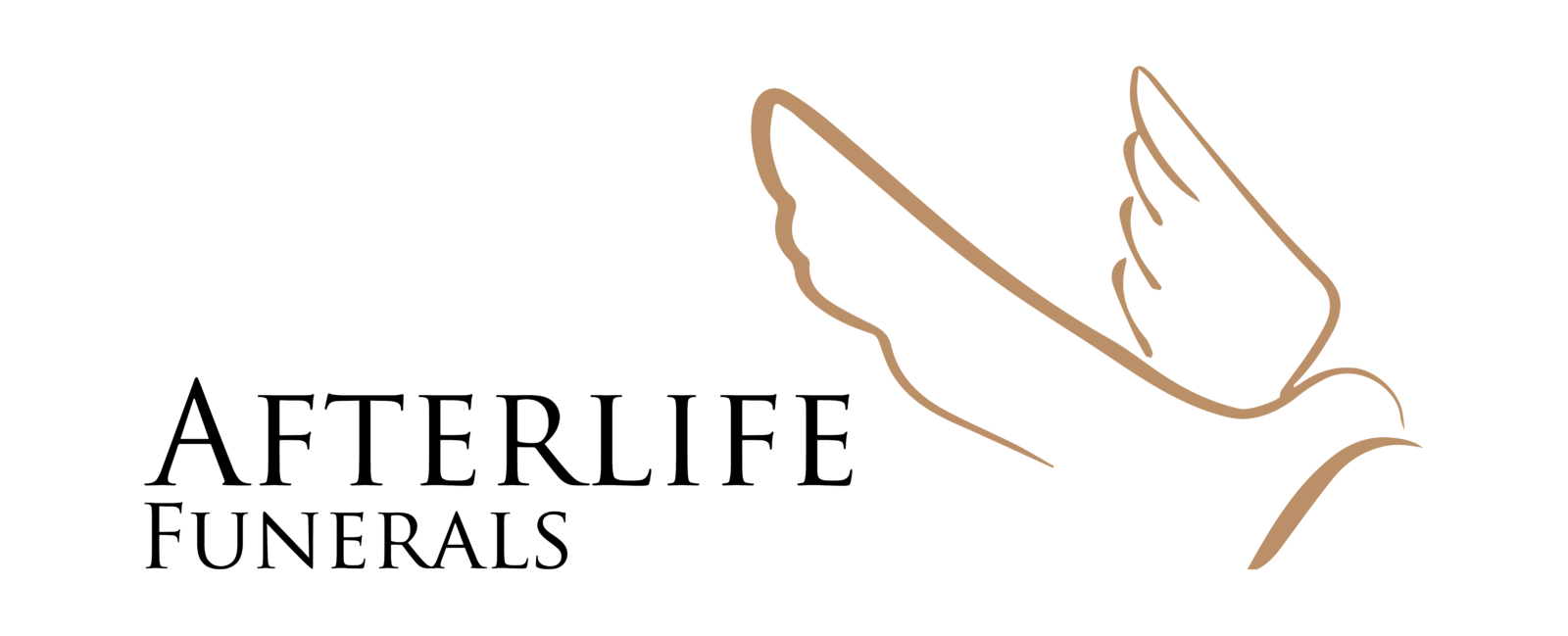Forensic Medicine Unit (FMU) In Australia’s Biggest, and Newest, Morgue in Western Sydney.
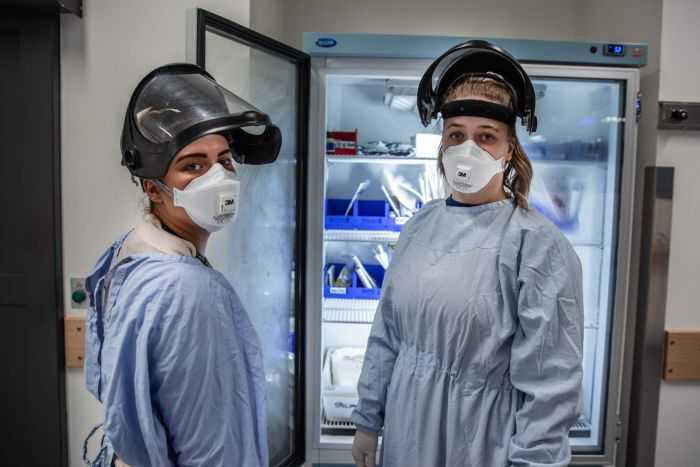
The fridge walls are lined with canvas body bags carefully laid out on metal shelves.There's enough room for 500 corpses — they can stay here for a while. For the first time, the ABC has been given exclusive access inside the Forensic Medicine Unit (FMU) in Australia's biggest, and newest, morgue in western Sydney.Warning: Some readers may find this story distressing.Photo: Forensic assistants at Australia's biggest morgue. (ABC News: Mridula Amin) The Lidcombe complex opened in January, and about 300 bodies come in on a typical month.
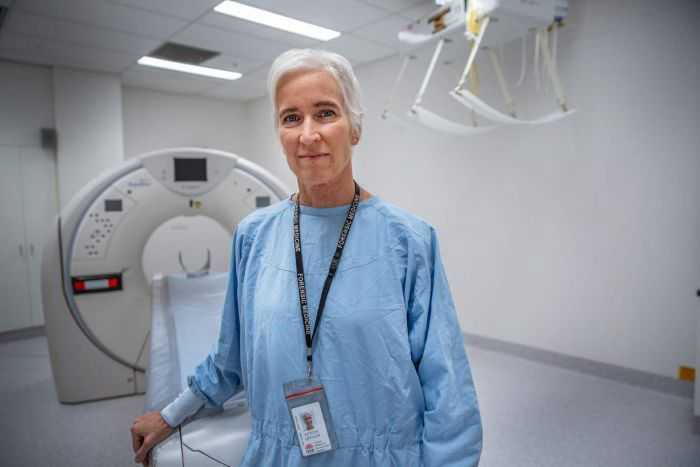
It's a 24-hour operation: a high-tech monitoring system tracks corpses every step of the way through the coronial process."I've heard of hospitals leaving a body out for too long after a procedure or a viewing, but that can never occur here," mortuary manager Robert Cluney says."Our body tracking works off time and temperature parameters, and if they are exceeded an alarm goes off on all our computers."Not all deaths pass through the morgue — only those that have been reported to the coroner.The coroner investigates deaths that are sudden, unexplained, occur in police custody or during a police operation or in mental institution.About 6,000 deaths are reported to the NSW coroner annually — half are from the Sydney region.In a strange way, the FMU is like any other workplace.On the day the ABC was allowed inside, a radio was playing pop music and staff were busy cleaning. Most of the post-mortems had finished."They're restocking, getting everything ready for tomorrow. We have a saying in here — make sure you clean up after yourself," Mr Cluney says.The highly specialised team of 14 forensic pathologists, toxicologists, social workers and others say their office has a "culture of kindness".Photo: Magistrate Teresa O'Sullivan says in her 30 years in law, the role of acting state coroner is the dearest to her heart. (ABC News: Mridula Amin)
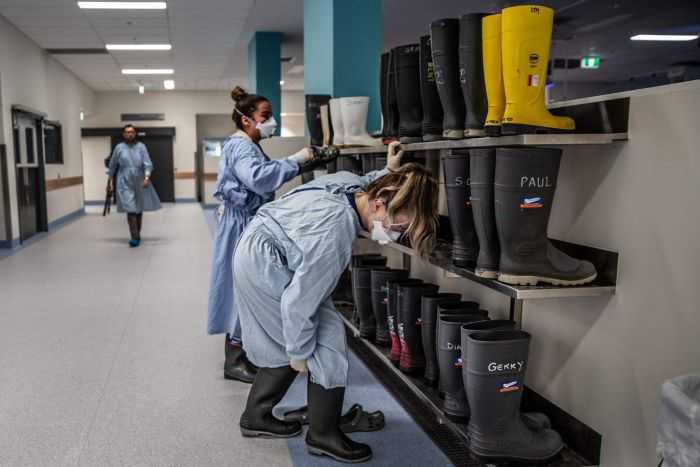
Mr Cluney says most mortuaries he has worked in have been in basements.But the new Lidcombe one has windows and even a "chill out" garden."On very traumatic cases like paediatrics, my staff can be working on a baby for up to 12 hours so they need time out after that," he says."They don't want to go for a walk up the road or sit in the staffroom talking.""They just want to have a cup of tea on their own and reset."Giant CT scanners have eliminated the need for more invasive procedures on corpses and been a game changer for families hoping to get the bodies of their loved ones back quickly.There's a special post-mortem room for bodies with highly infectious diseases and a biohazard room for corpses that have been exposed to dangerous chemicals.Storage racks house neat rows of protective masks and black rubber boots that staff wear when performing post-mortems.One pair has "I'm tired" painted on the left boot and "Me too" on the right.
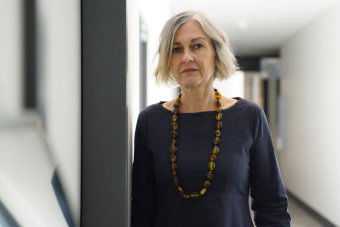
'Respect and sensitivity'
Social worker Colleen Fitzpatrick heads a team that looks after families during the coronial process and says the key to her job is empathy and kindness."Some people need their loved ones out of the building as soon as possible, some need to spend more time with them and give their head time to catch up with their heart," she says."There is a lot of work behind the scenes that impacts on why bodies need to be here as long as they do."One couple she looked after was Anna and Robert Gibson, who became involved in the coronial process after their three-year-old daughter Lara died unexpectedly in her sleep from natural causes.Mr Gibson says the role of the social worker was extremely important during that period as he and his wife were in shock."You have someone who's your contact point and who holds your hand through the process," Mr Gibson says."They're someone who you feel is in your corner.Photo: Colleen Fitzpatrick says some family members wish to spend more time with their loved one. (ABC News: Taryn Southcombe)
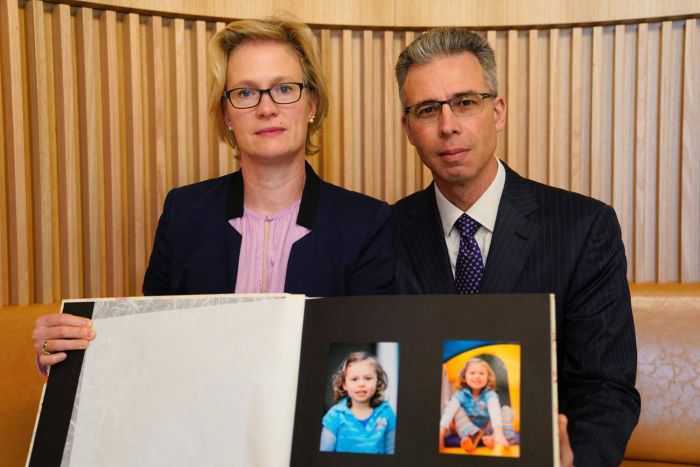
It was important for the Gibsons to be able to view their daughter's body as often as they wanted to.
They also found it reassuring to meet the person who performed the post-mortem."Knowing it was being done by people who assured us this intrusive procedure on our child was going to be conducted with great respect and sensitivity," Ms Gibson says.Some bodies are released the same day, others within a week, but in more complex cases such as homicides the process can take much longer.Magistrate Teresa O'Sullivan has been a lawyer for 30 years but her role as acting state coroner is the one closest to her heart."I've never been in a court where the word love is used so freely and so often," she says.Photo: Anna and Robert Gibson found it reassuring to meet the person who performed the autopsy on their three-year-old daughter Lara. (ABC News: Taryn Southcombe)
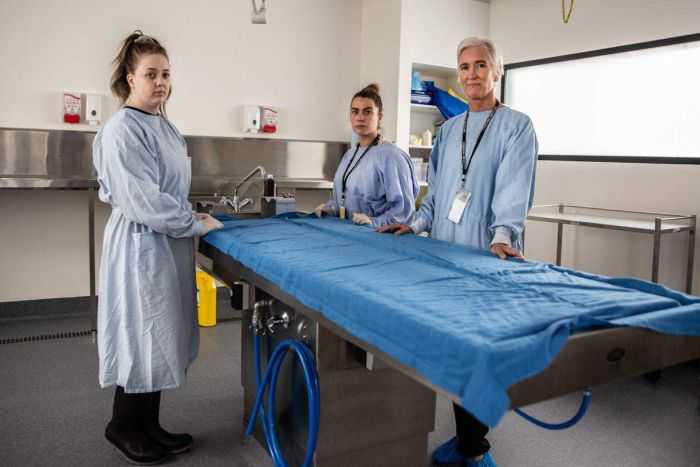
"The people we are working with, the staff and those who've lost a loved one, are all going through emotions that are so human and there's a lot of empathy the staff feel towards families they are helping.
"They'll bend over backwards to help people who are going through the worst day of their lives."Unlike other courts, the coroner's role is also to consider recommendations to prevent similar deaths in the broader community.Meeting the needs of different cultural and religious groups has become a priority and the coroner says she's always open to doing things better.President of the Lebanese Muslim Association Samier Dandan has an ongoing dialogue with the coroner's office and says people from Islamic and Jewish communities have a need for expedient burials."We witnessed what happened in Christchurch," he says."That was a sad occasion but it also showed that crisis management is a crucial part of what communities need to develop."Photo: Magistrate O'Sullivan (right) says the word 'love' is used freely in the coroner's court. (ABC News: Mridula Amin)
Source: www.abc.net.au

